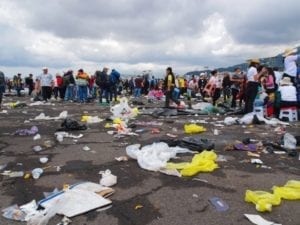The UN has estimated that the global population will near 11.3 billion by 2060.
Populations in Africa are expected to experience just as much exponential growth – with the continent expected to reach over 2.5 billion by 2050, representing – quite interestingly – 26% of the world’s total population by that time. But what does this mean for the amount of waste being generated in Africa – do we have what it takes to manage it effectively and what needs to be done to ensure that we don’t run into a waste crisis? “There is no doubt that such growing populations allude to a very serious challenge that threatens future resilience and sustainability, especially in developing regions in Africa, if we don’t change our attitudes to what we consider resources versus waste,” says Kate Stubbs, Director Business Development and Marketing at Interwaste. “Whilst growing figures mean solid opportunities for investors and businesses – where Africa hosts the fastest growing consumer market in the world but, for the waste sector, it means serious intervention, innovation and management if we hope to see a positive outcome.”If we consider that the world’s cities generated 2.01 billion tonnes of solid waste – equating to approximately 0.74 kilograms per person per day, and that annual waste generation is expected to increase by 70% from 2016 levels to 3.40 billion tonnes in 2050 – with its root cause in rapid population growth and urbanisation – then it’s evident that if we continue on the same waste trajectory and mentality that has driven this sector for many years, we will head towards an unprecedented waste crisis.
With landfills across the globe already over-capacitated, it is critical for both government and corporate South Africa to implement drastic changes wherever possible to divert waste from landfill and make better use of the waste that is generated. “So, when looking at this, we have to decide what the most strategic approach is to best manage both resources and waste and, more importantly, turning waste into a sustainable resource – creating alternatives from existing waste streams to reduce and reuse,” says Stubbs.





